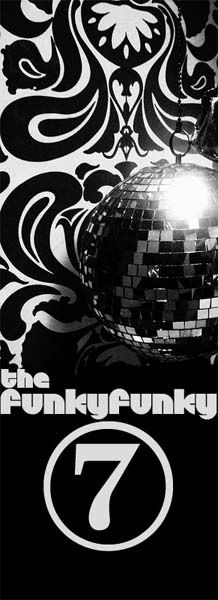| |
| |
Wednesday, September 20, 2006
| Hard work and songcraft mitigate assholism |
 As Mallory knows, I'm fond of Sting's The Soul Cages, the only solo album on which his poetic pretensions find appropriate, pretty settings. Since this is Sting he's incapable of considering that ponderous subjects may be more interesting if treated with levity. The endless closer "When The Angels Fall' falls and falls, searching for a melody, anything to justify itself and its employment of worn tropes (and yet a feisty deejay played this at my junior prom, to my delight if not my date's). Elsewhere his crack band injects a tricky time signature on "Jeremiah Blues (Part 1)" as predictable as their paymaster's wit and even stoops to power chords on the epic (there's three songs which qualify as such; remember this is Sting), broken-kneed shuffle of the title track. As Mallory knows, I'm fond of Sting's The Soul Cages, the only solo album on which his poetic pretensions find appropriate, pretty settings. Since this is Sting he's incapable of considering that ponderous subjects may be more interesting if treated with levity. The endless closer "When The Angels Fall' falls and falls, searching for a melody, anything to justify itself and its employment of worn tropes (and yet a feisty deejay played this at my junior prom, to my delight if not my date's). Elsewhere his crack band injects a tricky time signature on "Jeremiah Blues (Part 1)" as predictable as their paymaster's wit and even stoops to power chords on the epic (there's three songs which qualify as such; remember this is Sting), broken-kneed shuffle of the title track.
Yet there's a sense in which Sting's commitment to the myth of his upbringing (destitute Newcastle shipbuilder dies to give birth to the once and future King of Pain) frees him from sullying his genius on the creation of hits and such. At least half of TSC's tracks allude to his childhood, and each improves on its predecessor, as if he was a writer discarding incomplete drafts. He works damn hard here, and while the strain shows the results are often impressive. The album's lone hit, "All This Time" is one of the oddest Top Fivers ever: a striking mandolin hook ("Losing My Religion," the year's other mandolin hit, was three months away) and Sting's mastery of conversational cadences; he unfurls those polysyllabic sentences ("Fussin' and flappin' in priestly black like a murder of crows") as if Paul Simon had never existed. "Why Should I Cry For You?" should get more publicity as his most ambiguous ballad since "Every Breath You Take." Sounding a little like Peter Gabriel's "In Your Eyes" and studded with unexpected filigrees, it shows a rueful, gentler Sting, whose dusky croon weighs each word like he can't understand why he should feel conflicted. The sailor-far-from-home metaphor mitigates the assholism he's surprisingly eager to accept (""I loved you in my fashion"). It's a touching performance, justifying the song's inclusion in a couple of C-90's I've compiled over the years.
From its doctor's-office cover art to Ottmar Liebert homage/pastiche, The Soul Cages is estimable middlebrow art. It's the sort of album your cousin Ralph will zealously defend at a Christmas party, provoking from you a condescending smirk but no rebuttal.
(crosslisted on agrandillusion.com)
|
Posted by Alfred Soto
on
Wednesday, September 20, 2006 at 8:49 PM | Permalink

|
|
|
|
|
| |
| © 2006 The FunkyFunky 7
|
|
| |
| The FunkyFunky 7 Are: |
|
A group of kids with WAY too much time on their hands.
|
| RSS |
| Feed
|
| Recent |
|
| Archives |
|
|
|

